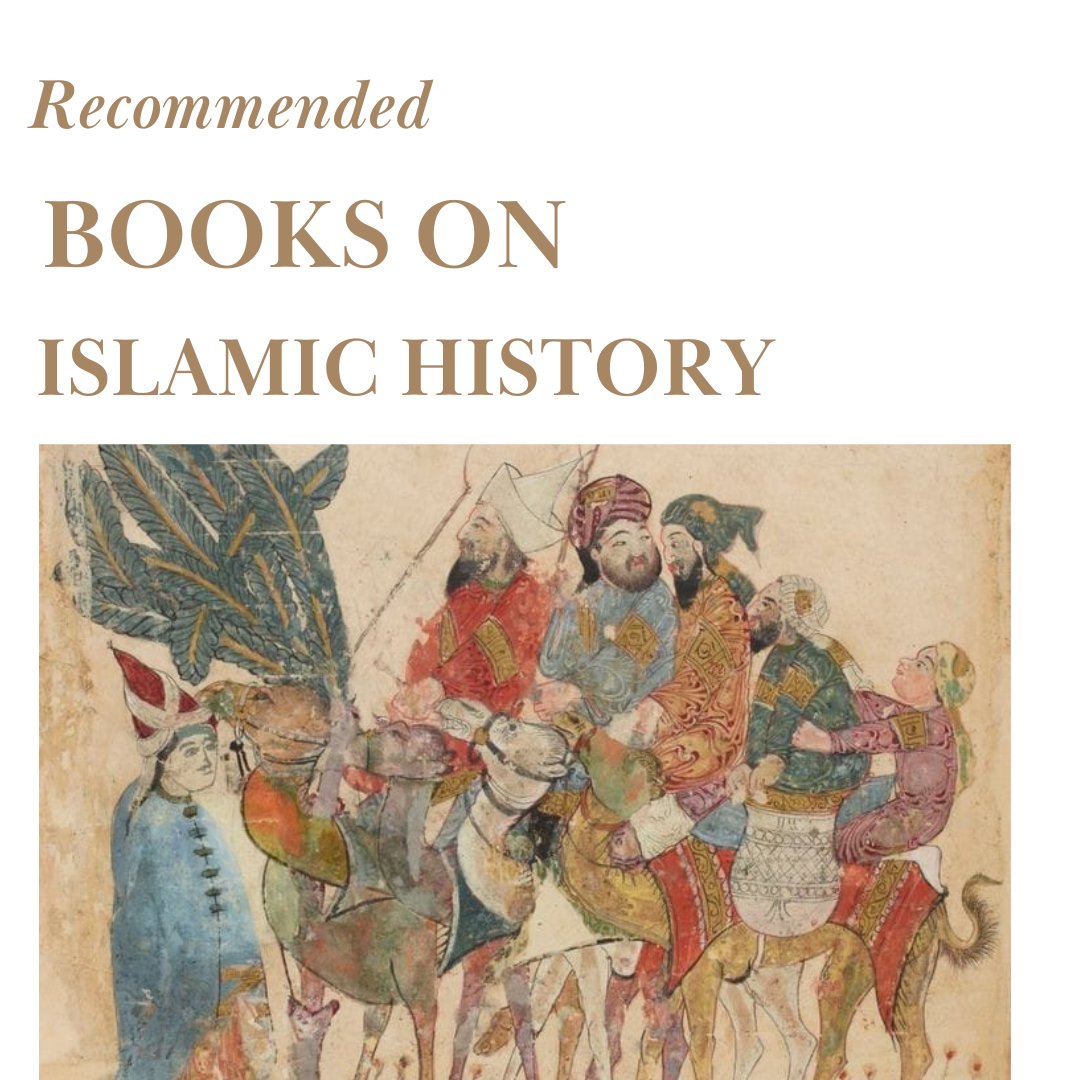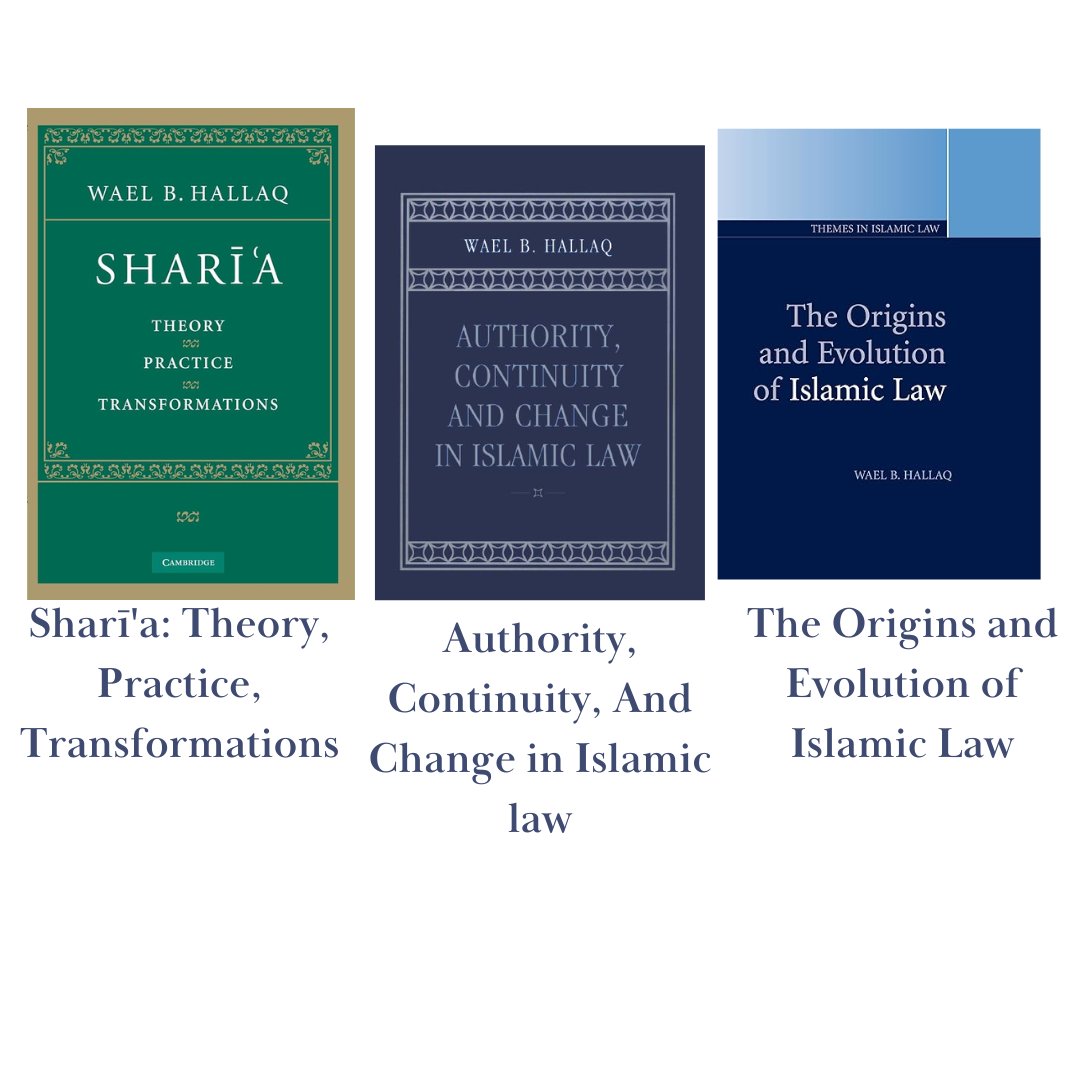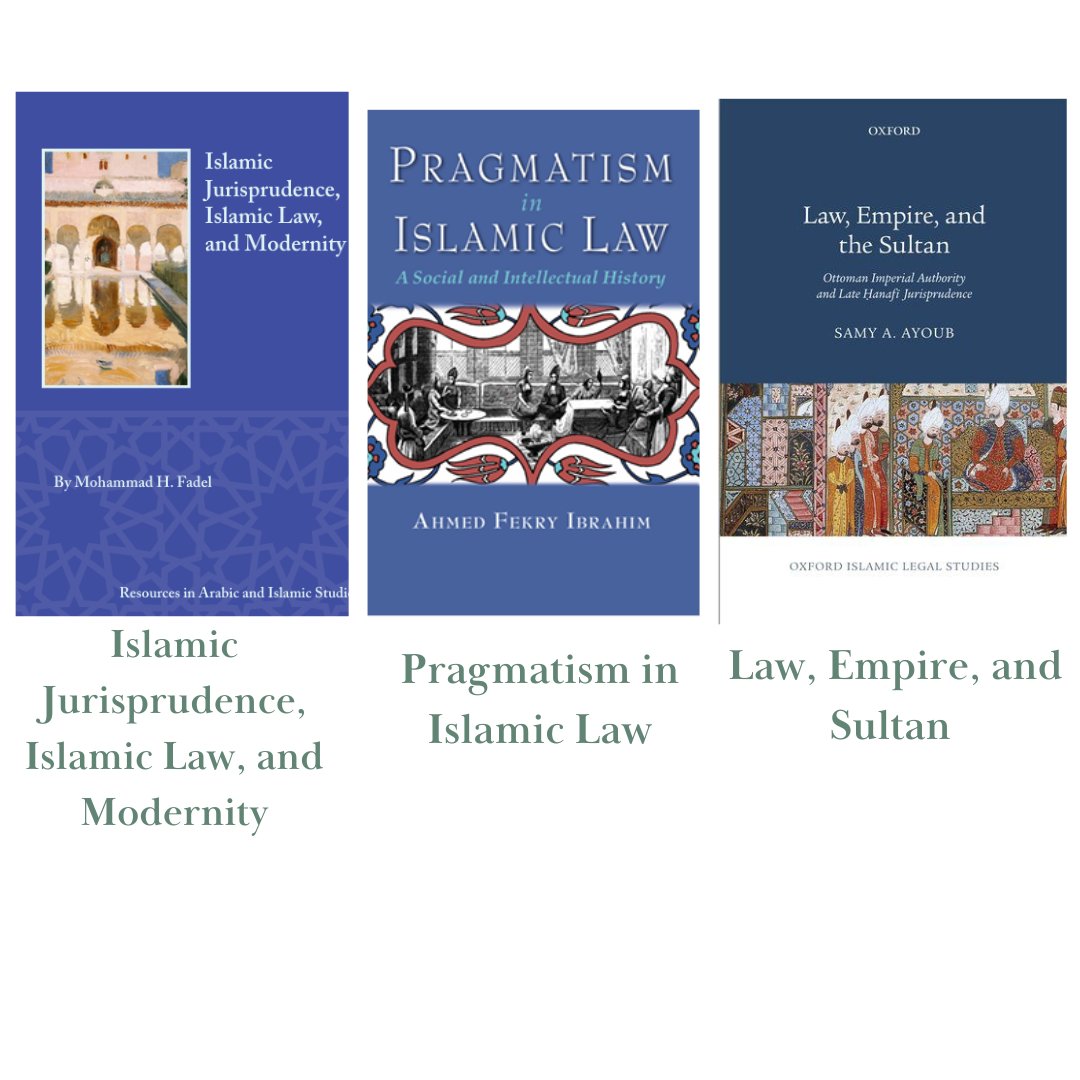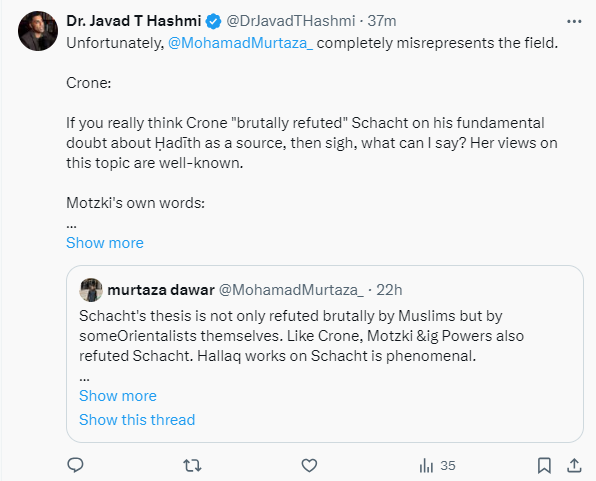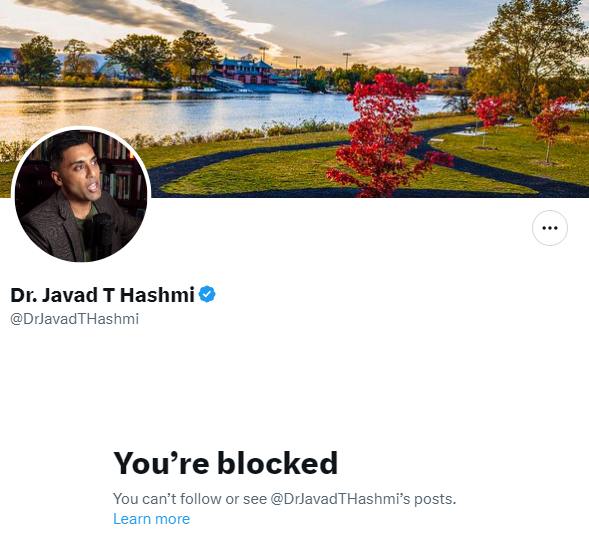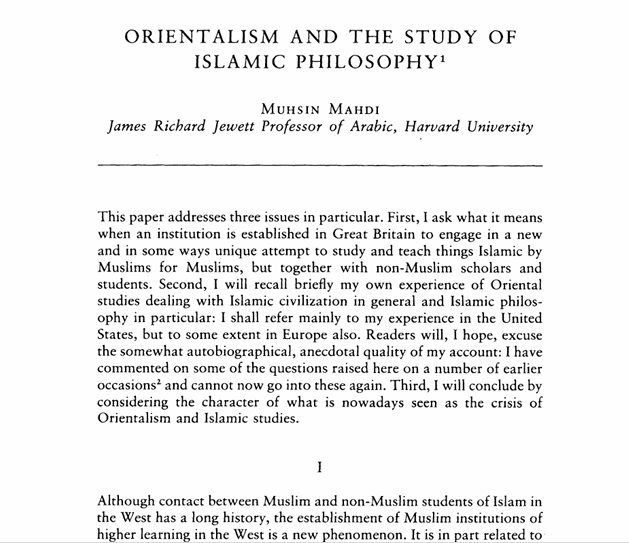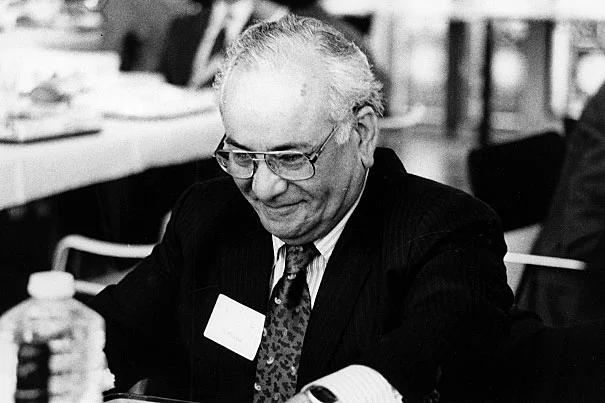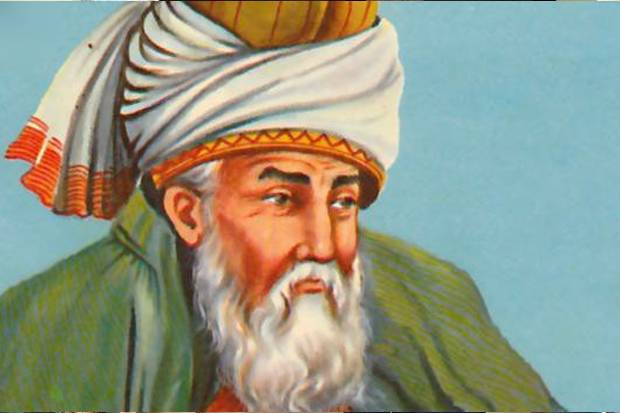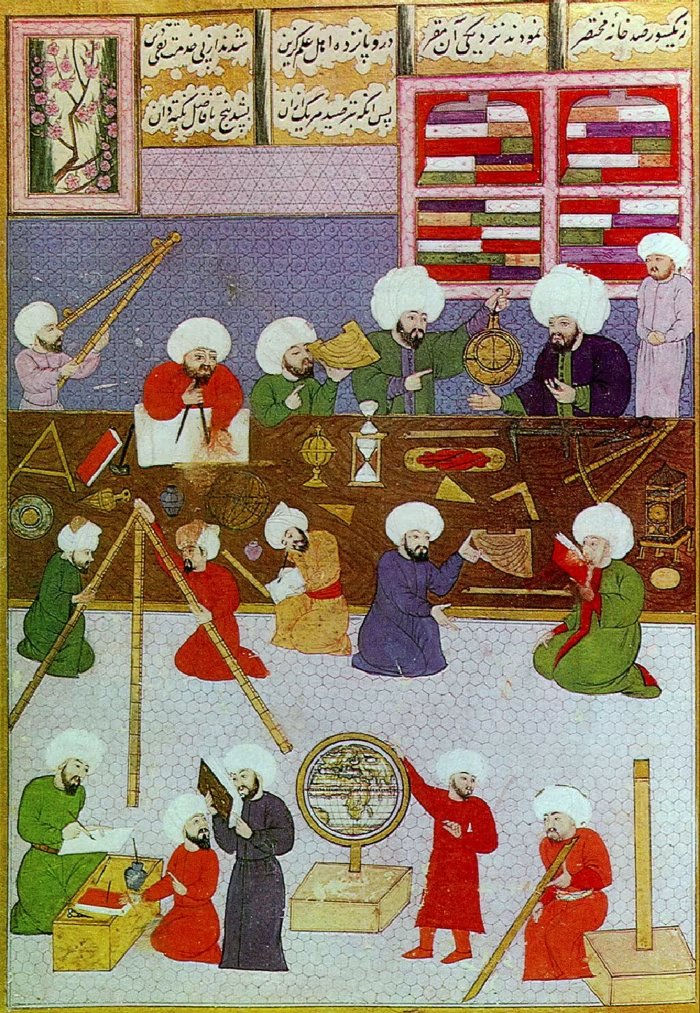|🧵History of sugar production and freedom in the new world |
Caribbean sugar plantations are a key site for studying the simultaneous development of racial slavery, indigenous dispossession, environmental destruction and modern liberal freedom
1/
Caribbean sugar plantations are a key site for studying the simultaneous development of racial slavery, indigenous dispossession, environmental destruction and modern liberal freedom
1/
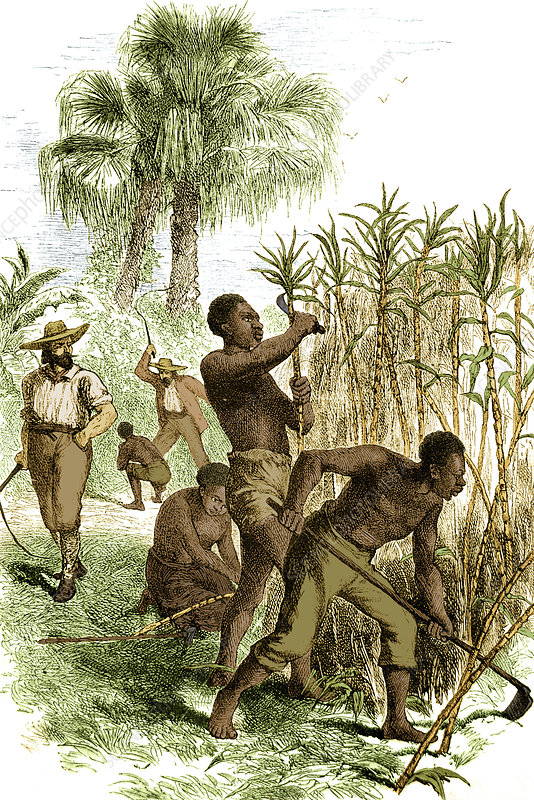
Most of the modern social, economic and freedom practices emerged from Caribbean. The history and production of sugar is brutally violent, yet this violence also served as fertile ground for political theories of freedom influential in liberal democratic thought.
2/
2/
Theories of liberty as individual self-possession, of legitimate government as based in consent, of self-rule as a rejection of state tyranny, and of economic freedom as uncoerced labor and trade have links to the production of sugar.
3/
3/
Sugar encompasses the unthought register of modern freedom; it links individual freedom to plantation mastery, self-rule to enslavement, and independence to environmental destruction.
4/
4/
On the sugar plantation, planters’ individual freedom and autonomy take shape through slavery and dispossession. The wealth generated by Caribbean sugar plantations enabled Euro-American experiments with democracy and self-rule,
5/
5/
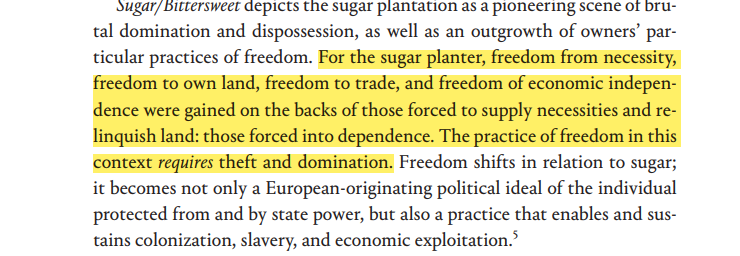
and those very practices of self-rule and independence entailed domination over others.
The title of Alejandro de la Fuente’s “On Sugar, Slavery, and the Pursuit of (Cuban) Happiness” provides a biting inverse of both John Locke’s and the Declaration of Independence’s.
7/



The title of Alejandro de la Fuente’s “On Sugar, Slavery, and the Pursuit of (Cuban) Happiness” provides a biting inverse of both John Locke’s and the Declaration of Independence’s.
7/
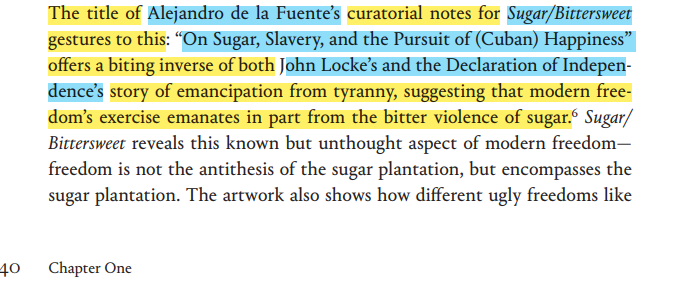
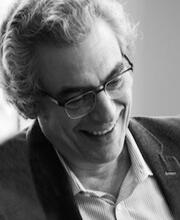
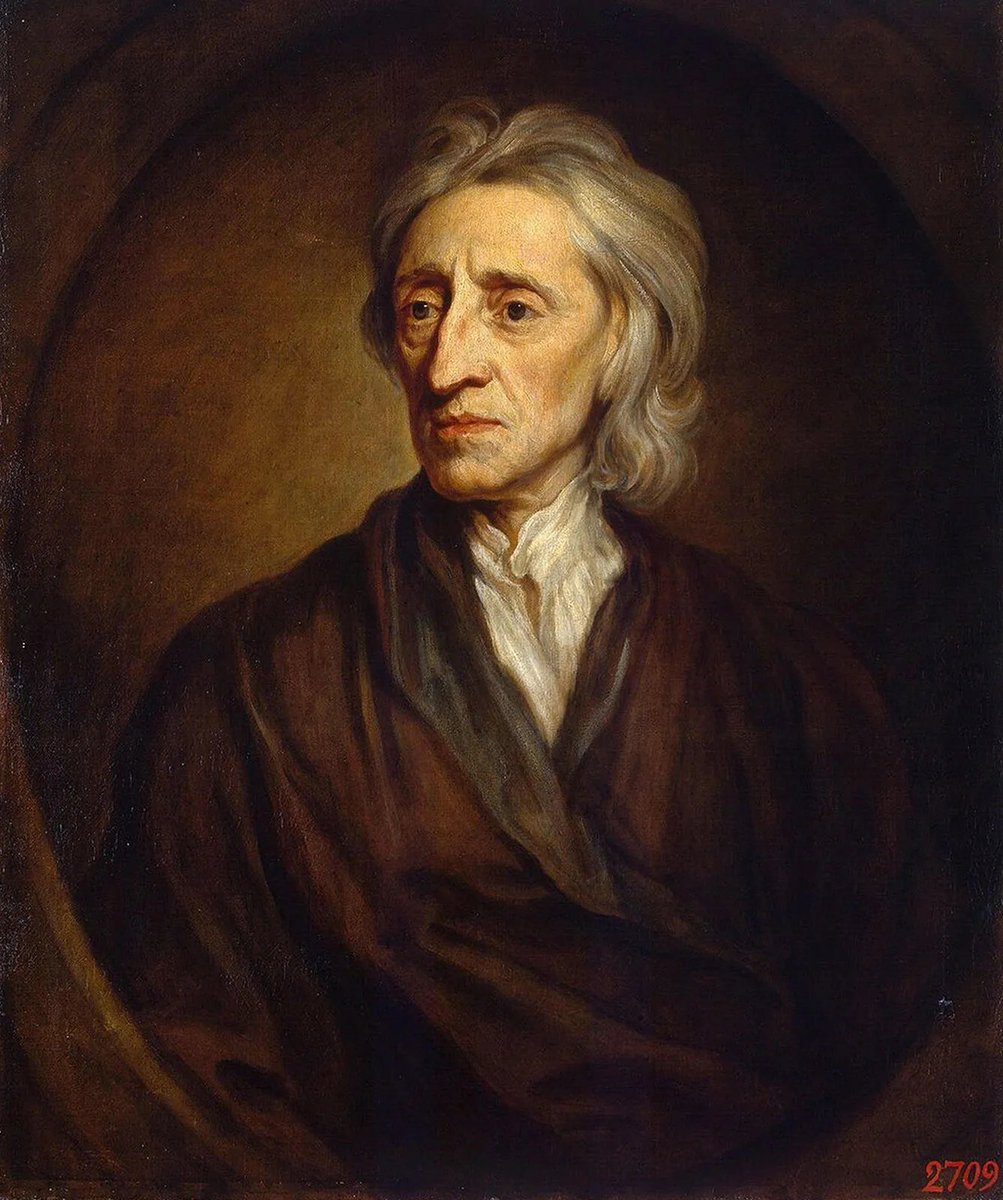
Sugar was different from other New World agricultural commodities from the start. It required large land, more investment, more labor than other crops like tobacco and cotton.
8/
8/

| Sugar production effects on environment |
The sugar plantation soon generated some of the most widespread destruction of native ecosystems the world had yet seen, exchanging them for nonnative monocultures that colonized the land’s resources for life.
9/
The sugar plantation soon generated some of the most widespread destruction of native ecosystems the world had yet seen, exchanging them for nonnative monocultures that colonized the land’s resources for life.
9/
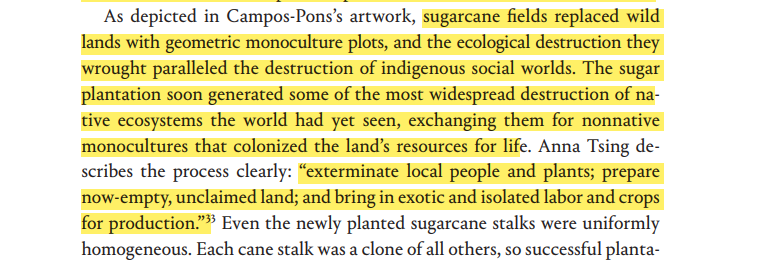
The sugar plantation thus destroyed wide swaths of complex biodiverse ecosystems and replaced them with uniform mono-crops. Richard Dunn called it “murdering the soil for a few quick crops and then moving along.”
10/
10/
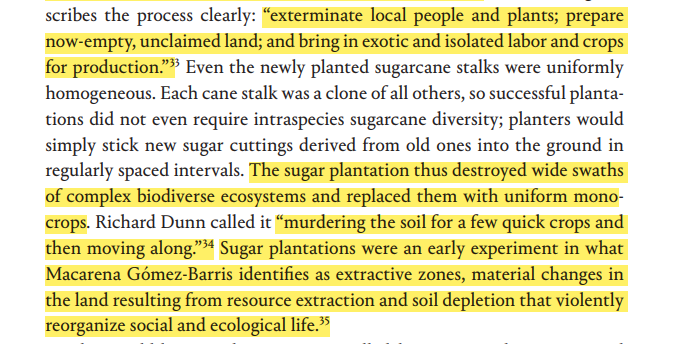
The plantationocene was predicated on destroying indigenous land relationships and life worlds the land was not viewed as an inert resource for the extraction of profit but as part of a mutually sustaining relationship bred from people’s obligations to land...
11/
11/
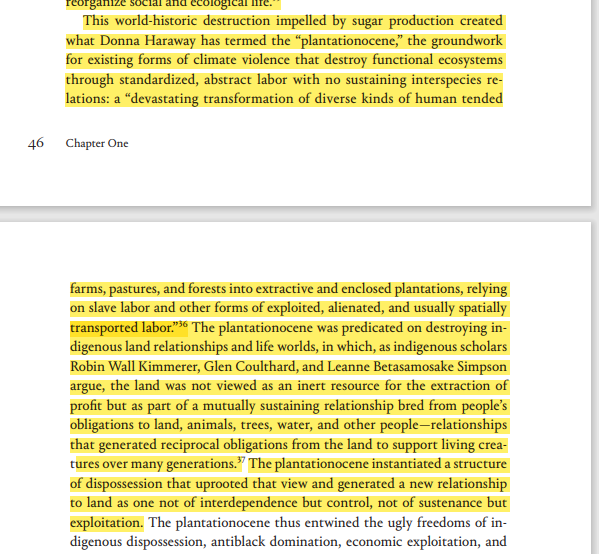
relationship that generated reciprocal obligations from the land to support living creatures over many generations. The plantationocene entwined the ugly freedoms of indigenous dispossession, antiblack domination, economic exploitation, and climate destruction to generate
12/
12/
financial prosperity and individual liberty for European sugar plantation masters settled in the Caribbean. Because it consumed so much land so quickly, sugar was the most destructive crop introduced in the New World.
13/
13/

| Sugar plantation and its effects on lives |
Sugar was also the most profitable of all New World commodities; indeed it was the first crop to render colonization profitable. It created the first black slave society in the world.
14/
Sugar was also the most profitable of all New World commodities; indeed it was the first crop to render colonization profitable. It created the first black slave society in the world.
14/

The sugar master invented the gang-style system of mass slavery that became the backbone for the next two hundred years of enslavement in the Americas.
He also created the first slave code in the English-speaking world, which was later copied in North American colonies.
15/
He also created the first slave code in the English-speaking world, which was later copied in North American colonies.
15/
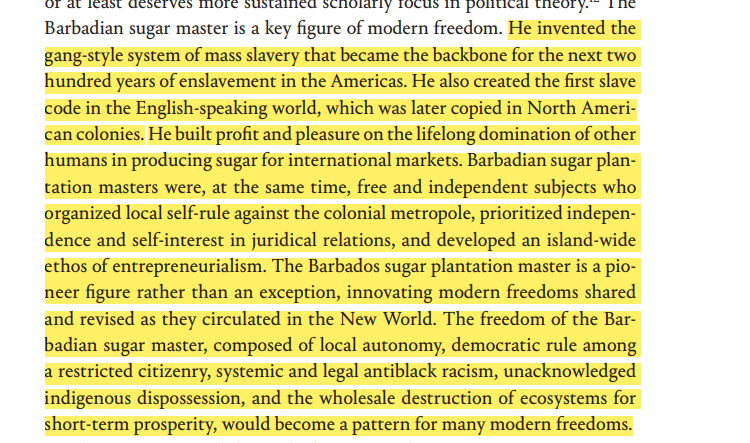
Before his voyages to the New World, Christopher Columbus had worked for a company that dealt in sugar, and he knew its commercial potential. In scouting the Caribbean islands, he assessed their potential for sugar production, and he brought the first sugar cuttings to the
16/
16/
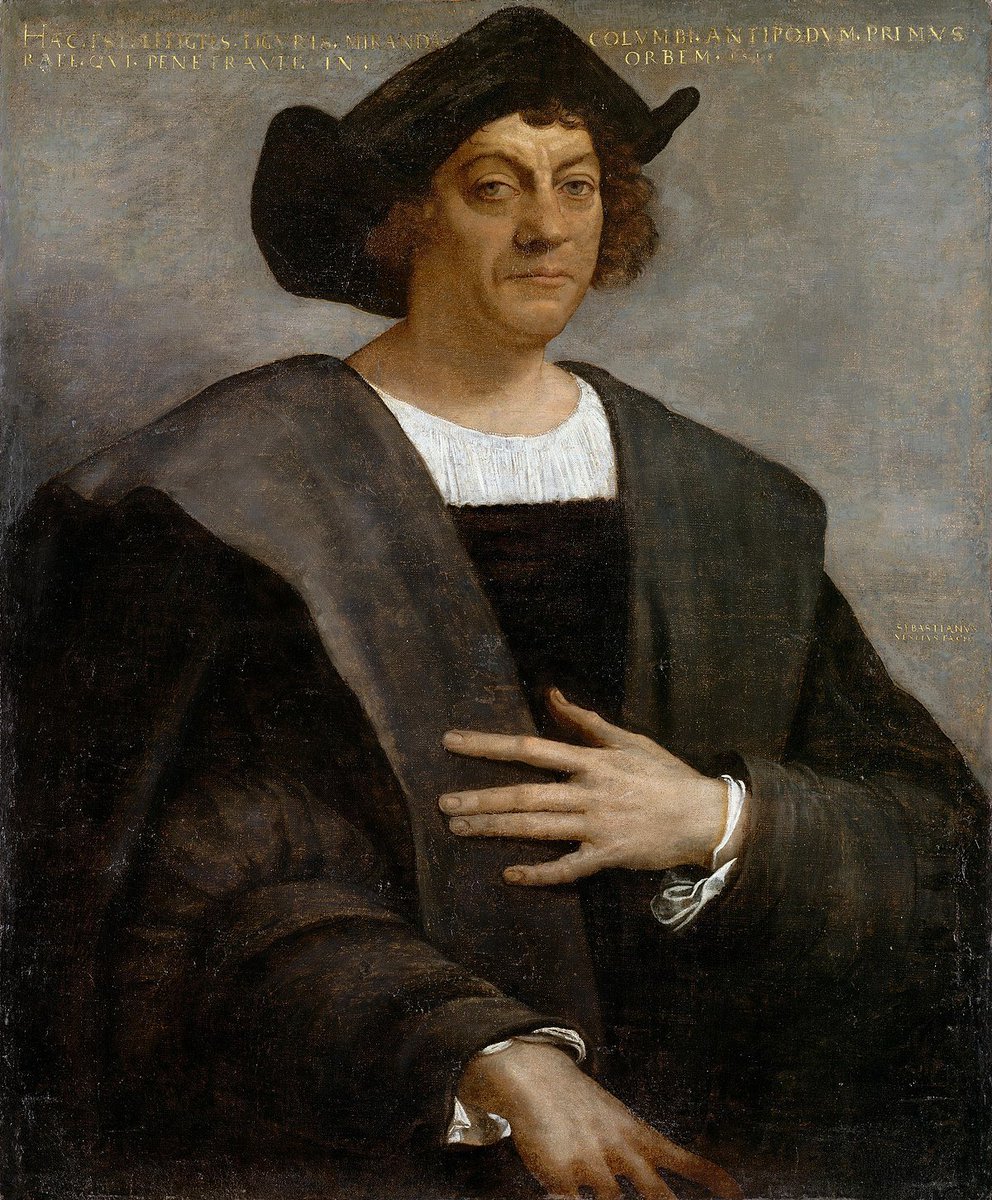
New World on only his second voyage in 1493. Along with firepower and weaponry, sugar was a key resource in colonizing the New World. settlers were growing the first profitable sugarcane on Hispaniola by 1509, and by the 1650s the cultivation of sugar in the Caribbean was
17/
17/
arguably the most profitable industry in the world. Sugar production was notoriously difficult. Sugar processing demanded a 14th-month cane growing cycle, then entailed cutting the cane, crushing and juicing it, boiling it, and skimming impurities, all in a tight timeframe;
18/
18/

all were difficult & exhausting practices. English sugar planters in pursuit of profit in the British West Indies created one of the harshest systems of servitude in Western History. The sugar plantation in the West Indies invented a new type of social & economic power that
19/
19/
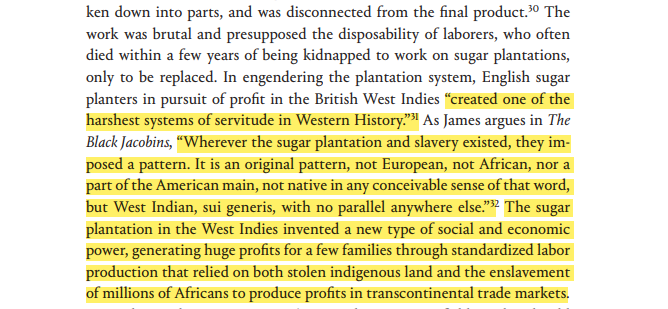
standardized labor production that relied on both stolen indigenous land and the enslavement of millions of Africans to produce profits in transcontinental trade markets.
20/
20/
laborers would routinely get infections while tending the sharp cane spears, lose limbs in sugar mill machines, or fall into boiling vats of sugar. Laborers on sugar plantations were primarily indentured and enslaved since the work was so difficult & dangerous that
21/
21/
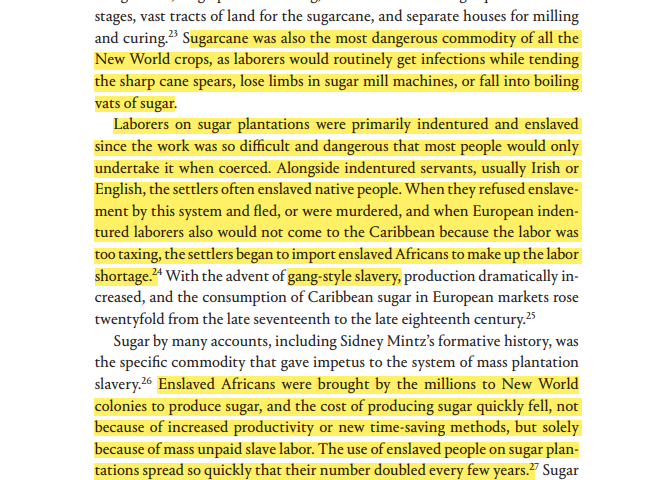
most people would only undertake it when coerced. Enslaved Africans were brought by the millions to New World colonies to produce sugar, and the cost of producing sugar quickly fell, not because of increased productivity or new time-saving methods, but solely because of
22/
22/
mass unpaid slave labor. The use of enslaved people on sugar plantations spread so quickly that their number doubled every few years.
23/
23/
• • •
Missing some Tweet in this thread? You can try to
force a refresh


